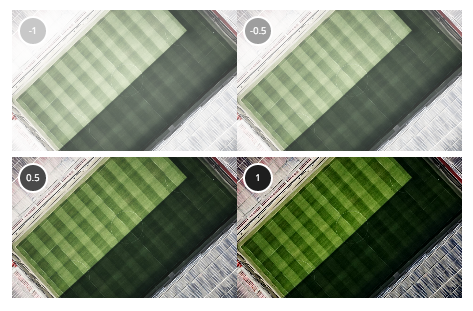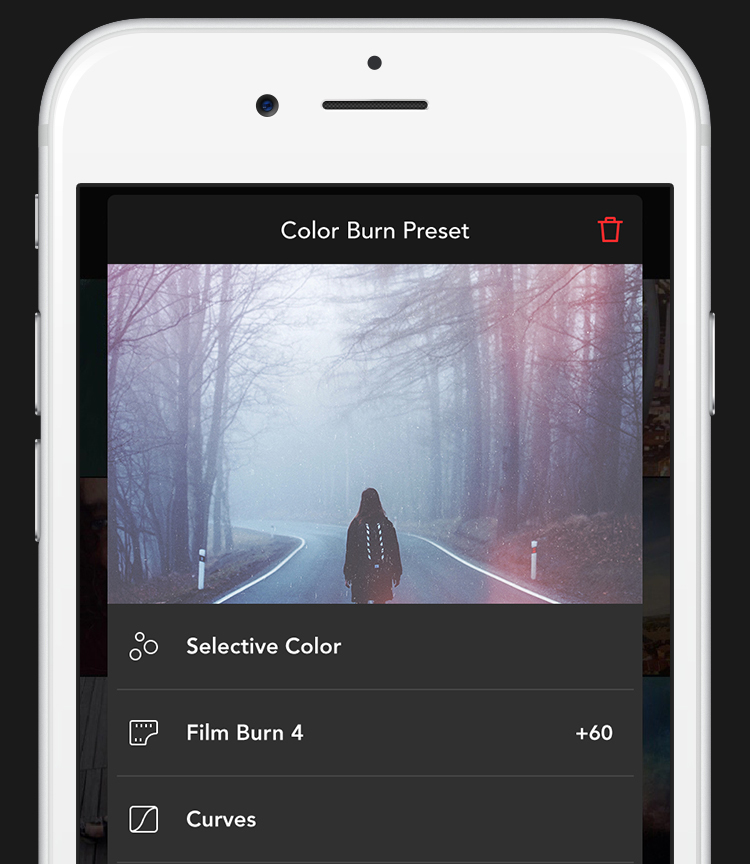5 top new image editing apps
Sign up to Creative Bloq's daily newsletter, which brings you the latest news and inspiration from the worlds of art, design and technology.
You are now subscribed
Your newsletter sign-up was successful
Want to add more newsletters?

Five times a week
CreativeBloq
Sign up to Creative Bloq's daily newsletter, which brings you the latest news and inspiration from the worlds of art, design and technology.

Once a week
By Design
Sign up to Creative Bloq's daily newsletter, which brings you the latest news and inspiration from the worlds of art, design and technology.

Once a week
State of the Art
Sign up to Creative Bloq's daily newsletter, which brings you the latest news and inspiration from the worlds of art, design and technology.

Seasonal (around events)
Brand Impact Awards
Sign up to Creative Bloq's daily newsletter, which brings you the latest news and inspiration from the worlds of art, design and technology.
Serious image editing is only really something you can trust to a desktop computer, right? Wrong.
More and more powerful image editing are being created for iOS and Android devices all the time. And in this post we bring together five releases every designer and photo retoucher needs to know about.
01. Adobe Photoshop Lightroom 2.0 for Android

Although there’s long been an Android version of Adobe’s image management and editing program Lightroom, this year’s 2.0 update in February pushed things forward in a big way. It brought many of the iOS app’s features over for the first time, as well as adding the ability (when using compatible devices) to shoot and edit uncompressed RAW files in Adobe’s DNG format.
While framing and taking your shots, the new app offers you a series of built-in presets that let you adjust camera settings (flash, white balance, exposure compensation, grid, and shutter delay). And there are also some great post-processing tools, including Split Toning, which lets you add colour casts to highlights and shadows, and Dehaze, which adds contrast and clarity to hazy or foggy scenes.
Lightroom for Android 2.0 is free to download from the Google Play store, even if you don’t have a Creative Cloud subscription.
02. Adobe Photoshop Lightroom 2.5 for iOS

This September, the new version of Lightroom users brought to for iOS 10 what Android users had been enjoying for months: the ability to shoot in Adobe’s own DNG Raw format.
This means that as well as being able to edit imported Raw photos, you can now edit Raw photos taken directly by Apple devices with a 12 MP sensor, including the iPhone 6s and 6s plus, iPhone SE, the 9.7-inch iPad Pro, and the iPhone 7 and 7s.
Sign up to Creative Bloq's daily newsletter, which brings you the latest news and inspiration from the worlds of art, design and technology.
The new app also adds support for the new wide gamut P3 color space in the iPad Pro 9.7 as well the upcoming iPhone 7 and 7 Plus. You can download Lightroom 2.5 for iOS for free here, even if you don’t have a Creative Cloud subscription.
03. Polarr 3.0

Polarr is one of a number of new apps that are bringing the flexibility and functionality of desktop image editors to mobile devices. First launched in 2015, it’s available for pretty much every platform you could think of: iOS, Android, web browser, Chrome, Mac, Windows and Linux. And best of all, (for the moment) it’s free.
The latest update to the iOS version this September (version 3.0) harnesses the facial recognition API that Apple created for iOS 10. This means it can spot multiple faces in your photos, and can then apply precise edits (such as whitening teeth, smoothing skin, adjusting tone and brightening eyes) to all faces in a photograph at once.
With pro-level features such as brushing tools, colour masking, lens blur, adjustable filter strength, curve and colour toning tools, and more besides, Polarr is shaping up to be one powerful image editor. Future iOS releases are planned to include RAW editing, which is already available to Android users. Also worth checking out is the clear and comprehensive guide to image editing features on the Polarr website.
04. Creatic

There are a ton of mobile apps, such as Prisma, which offer a selection of pre-made filters and presets to apply to your phone and tablet photos. And at first glance, iPhone app Creatic looks like just another one of these.
But on closer examination, it offers a great deal more; most strikingly, the ability to create your own custom filters and editing presets.
Version 2.0 of Creatic, released this July, includes tools like custom gradient overlays, tonal curves, smart colour adjustments, and handmade textures that can add some serious punch to your image editing. The app is available as a free download from the App Store.
05. Neural Photo Editor
If the future of software lies in artificial intelligence, Neural Photo Editor lays down the first challenge to the world of image editing apps. Developed at the University of Edinburgh, it aims to uses AI to predict the changes you’re intending to make, and make them before you have to ask. (Yes, you read that correctly).
In short, then, we’re talking the Minority Report of image editing, and we’re not sure if that makes us a little scared or very excited.
Be aware that it’s very early days for the app, which currently only works on low-res images. But if you understand coding, you can download it from Github here and have a play around with it now.

Tom May is an award-winning journalist specialising in art, design, photography and technology. His latest book, The 50 Greatest Designers (Arcturus Publishing), was published this June. He's also author of Great TED Talks: Creativity (Pavilion Books). Tom was previously editor of Professional Photography magazine, associate editor at Creative Bloq, and deputy editor at net magazine.
